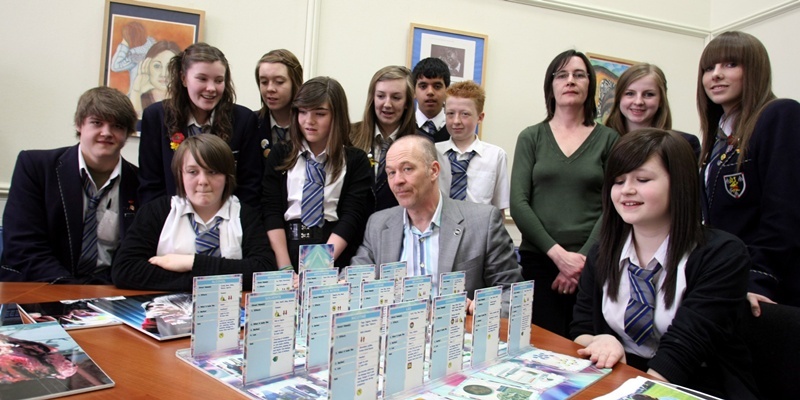A project to warn Dundee pupils against substance misuse has been praised in a national report by school inspectors.
The peer education project has seen secondary pupils trained to deliver warnings about drugs and alcohol to children still at primary school.
It has already won an award from local authorities umbrella body COSLA for tackling health inequalities and it is now being held up as an example of good practice.
The inspectors have been looking at how learning is being supported across Scotland through partnerships between schools and community organisations. Their research found that much good work was being done, with the Dundee scheme one of a handful to be singled out in their report.
The inspectors said, “Dundee Peer Education Project is a well-established project that raises awareness about substance misuse among S2 pupils and supports them to work as peer educators with P6 pupils. It originated in a concern about the levels of substance misuse in the city.
“In 2009/10 there were 74 peer educators from four secondary schools who completed the entire programme. Sixty of them are working towards their silver youth achievement award. These young people delivered a learning programme for 550 P6 pupils in 14 associated primary schools.”
The project works in partnership with the NHS, the police and various community groups an example of the “learning communities” the inspectors are keen to see spread.
It also ties in with the health and wellbeing section of the new school curriculum.
The inspectors’ report said, “The project raises awareness about drugs, alcohol and smoking prevention. The peer educators additionally gain training and experience in teamwork, leadership, confidence and citizenship, as well as opportunities for DVD production, photography, buddying and presenting at conferences.”
Senior chief inspector Bill Maxwell said, “Curriculum for Excellence recognises that learning takes place both in the classroom and beyond. We have seen evidence of how community learning and development partnerships can work very successfully with schools to improve outcomes for children and young people.
“Ensuring the wider spread of such practice is one of the biggest challenges to be faced if we are to achieve the aspirations of Curriculum for Excellence and building consistently effective learning communities in Scotland.”
